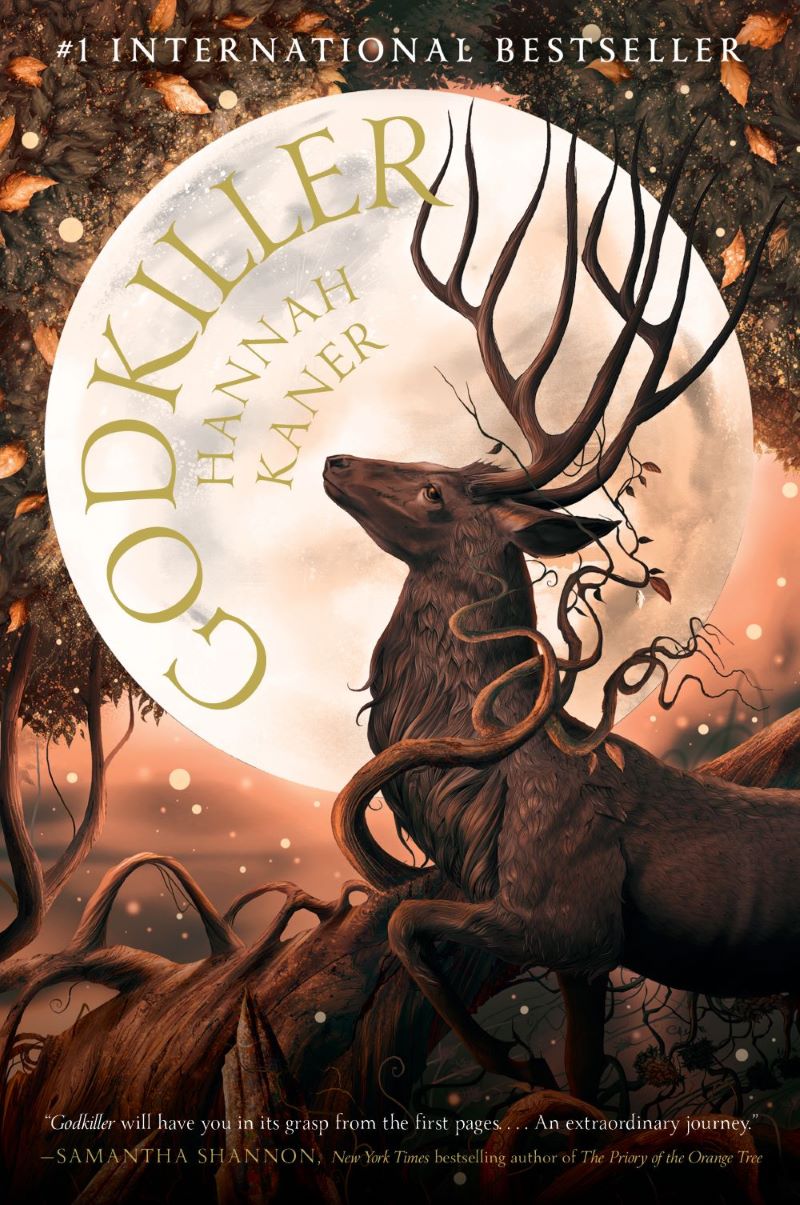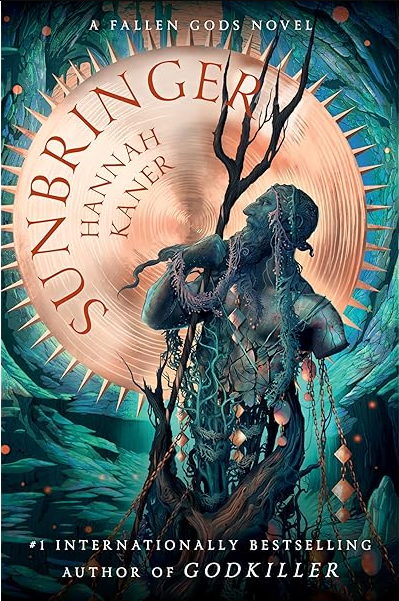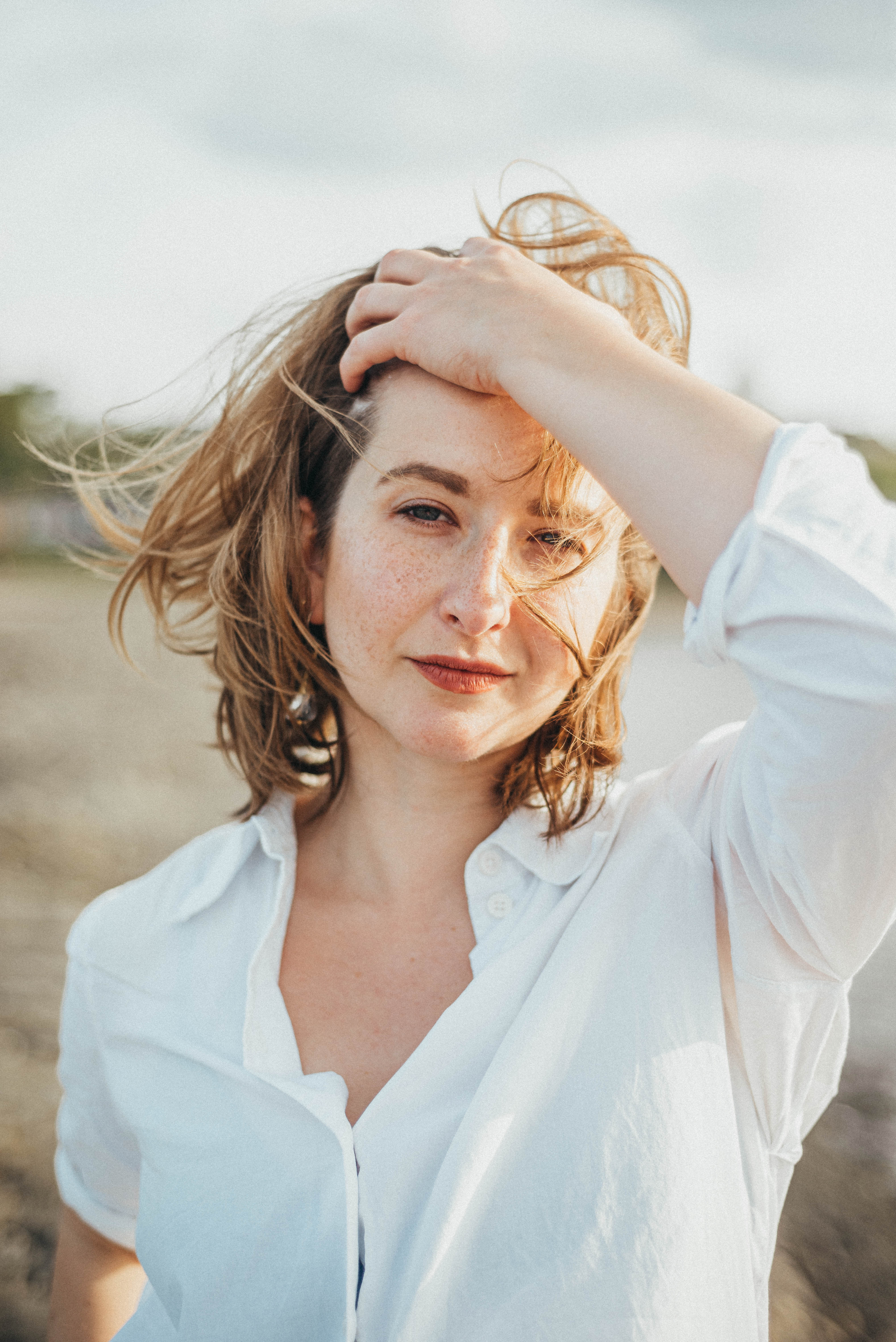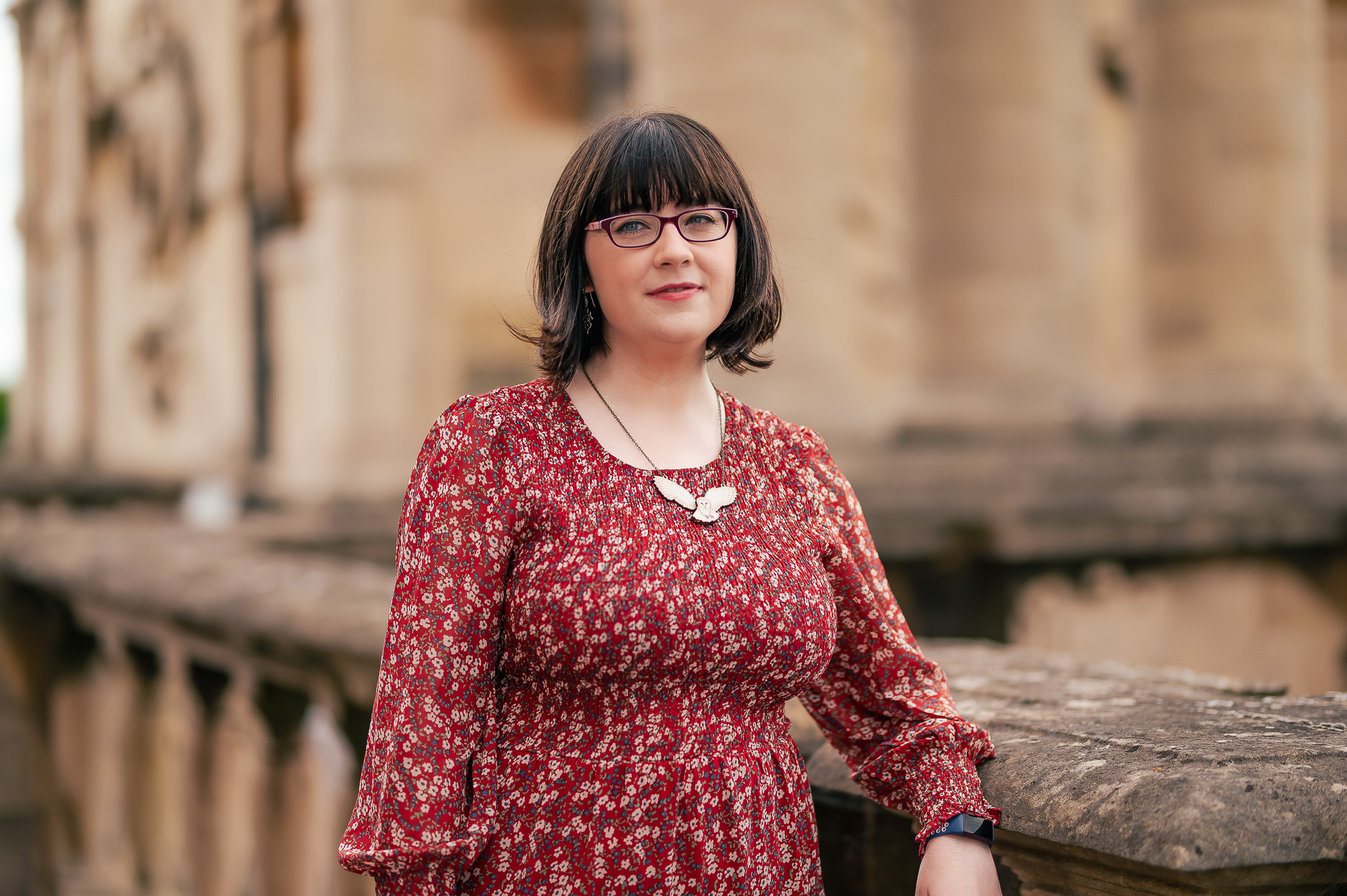Hannah Kaner is the author of Godkiller, the first book in the Fallen Gods trilogy. The next book in the series, Sunbringer, releases February 15th of next year! We are so excited to feature Hannah on our blog today to discuss her writing and publishing journey. Let’s dive right in!
Hi! Can you tell us a little bit about yourself and your debut novel, Godkiller?
Hello right back!
I was born and grown in the Northumbrian countryside near Newcastle, and despite a stint of living in London, I ended up moving back up north where the wild winds are. I now live in Edinburgh in Scotland, which is where the book was written.
Godkiller is a book about a woman who kills gods for a living, from small gods of a local river to big gods of oceans and war. That is, until she finds a god she cannot kill, the noble girl it is attached to, and a knight errant on a secret mission.
It’s a book about vengeance, resilience, love, and family. At its core, it’s a quest through wild lands with wilder gods, to a city destroyed by war.
What did your journey to publishing look like? What obstacles did you have to overcome to get Godkiller out in the world?
Godkiller is actually my seventh book, just the first to see ink and print. As with many writers, I have a great store of rejected manuscripts, unseen characters, and pure failings. I had three full books written, edited and sent on submission before I managed to connect with my agent, three books ‘died’ on submission with my agent over the following years.
Before Godkiller received interest, I had been submitting manuscripts for almost fifteen years, and had been with an agent for eight. I had fully accepted that maybe writing wasn’t for me, but I would keep at it for the love of it.
I felt like a failure for a long time, but more and more I have met authors who have similar stories, or even more difficult ones. There are authors who write the golden book first go, which is brilliant, but there are a lot more who have a few in their secret heart they had to relinquish as they went. Resilience is what makes a writer. Not many people have the grit to throw their heart out in the world over and over in the hope someone will catch it.
What is your favorite and least favorite part of publishing?
My favourite is the people. It’s meeting authors, creators, artists, video makers, booksellers, photographers, artists, cosplayers, fic writers, who are endlessly passionate and joyful about what they read and the fandoms they’re a part of.
My least favourite is the lack of control, and the systematic challenges that contribute to that. You never truly know what’s going to chance upon that magic formula that makes people fall in love with a book, its characters and its world. It’s true alchemy, and difficult to manufacture. However, marginalised authors have much bigger barriers to climb and expectations to hit, and that means it’s not an even playing field for our art.
Do you work on multiple writing projects at once? If so, can you tell us a little bit about any other projects you have in the works?
When I can, yes. But writing has never been my fulltime job, so most of my other projects have been my day job and my other endeavours at health and balance. I am now editing book 2 and writing book 3 in the trilogy, while also contemplating another trilogy and beginning to sketch out ideas. However, my favourite thing is to become completely immersed in and obsessed with a current project, till all other things fade away.
What is the best piece of feedback on your writing you’ve ever received?
A review for Godkiller that I loved said that it was clearly written by someone who loves fantasy. I felt so seen by that review. I do love fantasy, old and new, the magic and the worlds that have been forged out of it. I grew up on fantasy, science fiction, speculative fiction, young adult, literary fiction. I studied English at University and so have also read medieval texts, magic realism, short stories, plays and tragedies and epics. Fantasy is for me the heart of storytelling, it’s the first kind of tale and myth we told to other travellers around our campfires, and I adore it for everything it can be.
What do you do to get inside of your characters’ heads?
For me, they have to live outside the pages of the books, with all the little details that make a life. What do they want, and what do they believe? What did they do for fun before the events of the narrative? What do they eat as a snack? What’s their relationship with their mother? Their siblings? What lies do they believe about themselves? What brings them peace after a long day? All this contemplation is to build a voice, its desires, motivations and reactions. They have to have a life outside the life I give them.
Can you provide links to any websites or social channels you’d like readers to follow?
@hanfrankan on Instagram


For more author interviews with writing and publishing advice, click here.
To sign up for Ready Chapter 1’s Peer Critique Forum to get fast, actionable feedback on your writing, click here.




